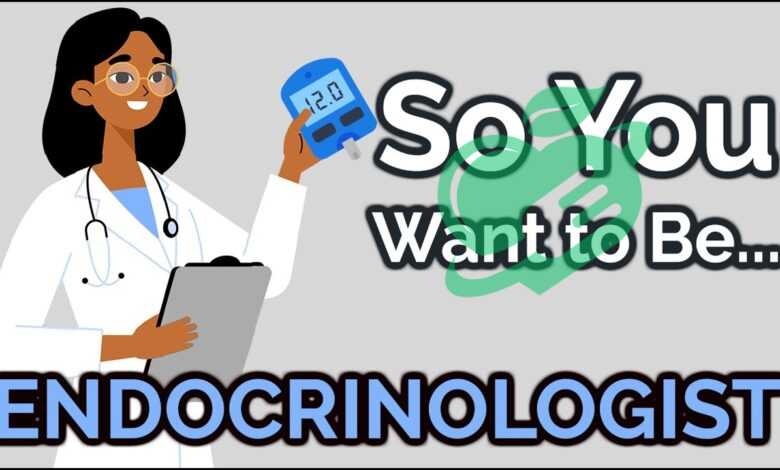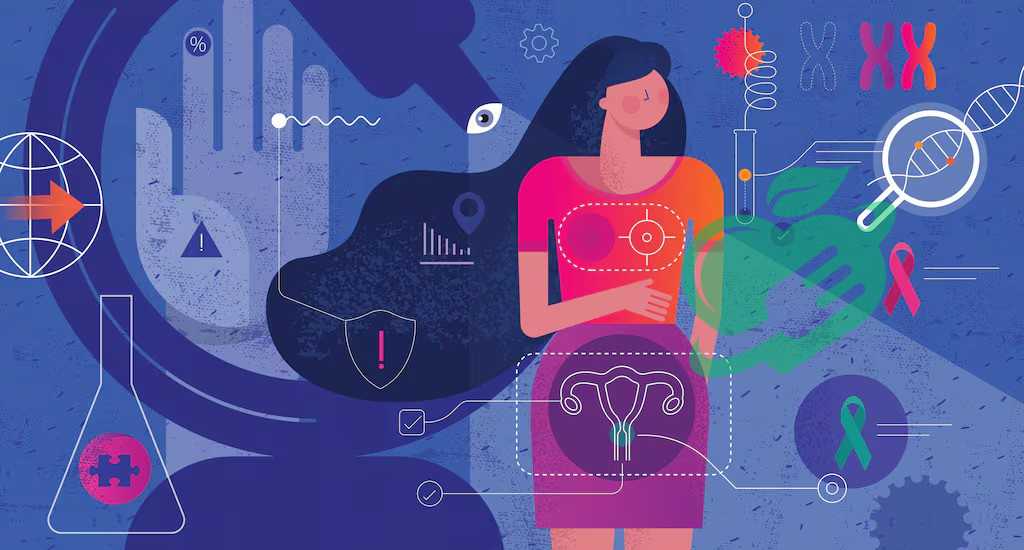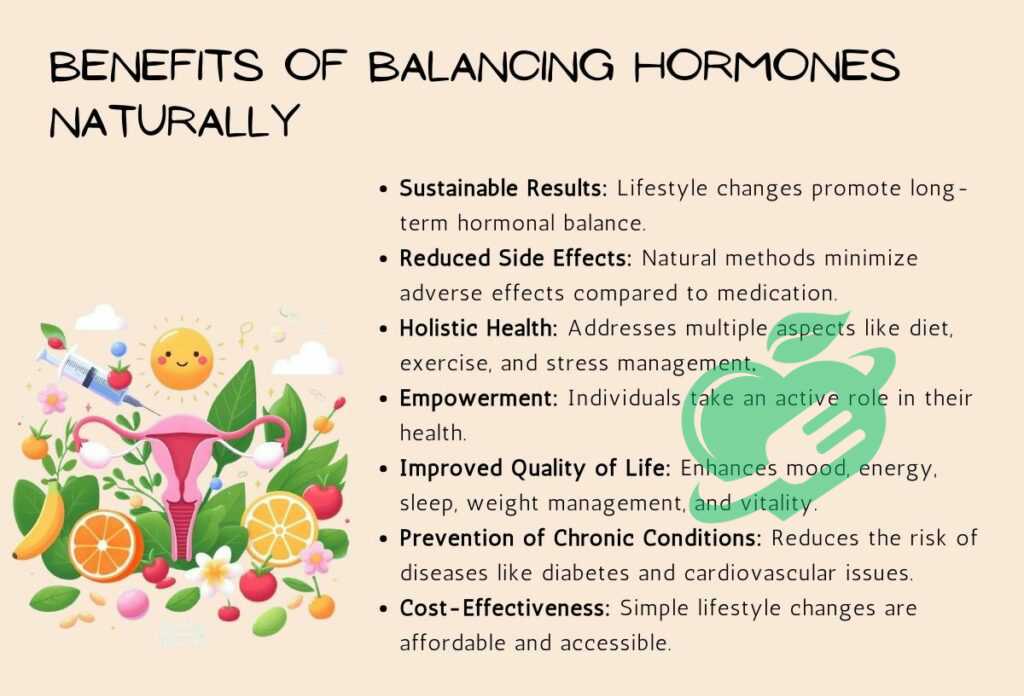Empowering Your Health Journey with an Endocrinologist’s Care

Understanding the Role of an Endocrinologist in Your Health Journey
endocrinologist meaning is a specialized branch of medicine that focuses on the endocrine system—the collection of glands that produce hormones. These hormones regulate various bodily functions, including metabolism, growth, and mood. Endocrinologists are trained to diagnose and treat disorders that stem from hormonal imbalances, offering care that can significantly improve overall well-being. Examples of conditions an endocrinologist may address include:
- Diabetes
- Thyroid disorders
- Osteoporosis
- Adrenal insufficiency
- Polycystic ovary syndrome (PCOS)
Understanding this scope helps patients appreciate the critical role endocrinologists play in their health management.
Importance of Consulting an Endocrinologist Meaning
Consulting with an endocrinologist is essential, particularly for individuals experiencing symptoms related to hormonal issues. Recognizing the signs is the first step toward meaningful treatment. Consider Sarah, who struggled with unexplained weight gain and fatigue. After consulting an endocrinologist, she learned she had hypothyroidism—a condition where the thyroid gland is underactive. Proper treatment led to significant improvements in her energy levels and overall health. It’s crucial to seek an endocrinologist when:
- Experiencing persistent fatigue or unusual weight changes
- Noticing changes in mood or mental health
- Dealing with reproductive health issues
Endocrinologists provide specialized care, ensuring that the hormonal aspects of health are adequately addressed to achieve optimal well-being.

Common Endocrine Disorders and Their Impact on Health
Diabetes Mellitus is one of the most prevalent endocrine disorders affecting millions worldwide. It occurs when the body cannot properly use insulin, leading to high blood sugar levels. There are two main types: Type 1, which is autoimmune, and Type 2, often linked to lifestyle factors. For example, Mark, a Type 2 diabetic, discovered his condition during a routine check-up. Since then, managing his blood sugar has become crucial in preventing complications such as heart disease and nerve damage. Key signs to watch for include:
- Increased thirst and frequent urination
- Fatigue and weakness
- Blurred vision
Thyroid Disorders
Thyroid disorders, particularly hypothyroidism and hyperthyroidism, are another common area of concern in endocrinology. Hypothyroidism occurs when the thyroid gland is underactive, leading to symptoms like weight gain, cold sensitivity, and depression. On the other hand, hyperthyroidism results in an overactive thyroid, causing weight loss, heat intolerance, and restlessness. Jessica, diagnosed with hypothyroidism, noticed a dramatic change in her mood and energy levels. With appropriate medication, she regained her vitality, highlighting the importance of hormonal balance.
Read also : Optimizing Your A1C Levels: Strategies for Success
Osteoporosis
Lastly, osteoporosis is a disorder that weakens bones, making them fragile and more likely to fracture. It often occurs due to hormonal imbalances, particularly with estrogen levels in women post-menopause. To combat osteoporosis, individuals should consider:
- Consuming adequate calcium and vitamin D
- Engaging in weight-bearing exercises
- Regular bone density testing
These common disorders showcase the profound impact of endocrine health on overall well-being, emphasizing the importance of early detection and management.
Read also: The Ultimate Vitex Agnus Castus Handbook: Tips and Tricks Revealed

Functions of Hormones in the Body
Hormones are vital chemical messengers that regulate numerous physiological processes within the body. They are produced by glands in the endocrine system and influence everything from growth and metabolism to mood and reproductive functions. For instance, insulin plays a crucial role in controlling blood glucose levels, while cortisol helps manage stress by regulating metabolism and immune response. Some key functions of hormones include:
- Regulating metabolism: Hormones dictate how the body uses and stores energy.
- Controlling growth and development: Hormones like growth hormone ensure proper physical development during childhood and adolescence.
- Influencing mood and behavior: Hormones such as serotonin and dopamine significantly impact mood regulation.
Hormonal Imbalance and Health Consequences
Hormonal imbalances can lead to a variety of health issues and can occur due to various factors, including stress, diet, and medical conditions. For example, Emily experienced mood swings and unexplained weight changes—a classic indicator of hormonal imbalance. After consulting with her endocrinologist, she learned that fluctuations in her estrogen levels were to blame. Consequences of hormonal imbalances can include:
- Weight gain or loss: An imbalance can disrupt metabolism, leading to unexpected changes in body weight.
- Mood disorders: Conditions like anxiety and depression can be exacerbated by hormonal fluctuations.
- Sleep disturbances: Hormones such as melatonin regulate sleep-wake cycles; imbalances can lead to insomnia.
Recognizing the critical functions of hormones helps individuals understand their importance in maintaining health and the need for intervention when imbalances arise.
Read also: Top 10 Skin Disorders You Need to Know About Right Now

Diagnostic Tools and Tests Used by Endocrinologists
When it comes to diagnosing endocrine disorders, blood tests are among the most critical tools in an endocrinologist meaning arsenal. These tests help measure hormone levels and can indicate whether a patient’s endocrine system is functioning properly. Regular blood tests can reveal vital information about a range of conditions. For example, Jane was feeling unusually tired and gained weight despite eating well. After her endocrinologist ordered a series of blood tests, they discovered she had elevated thyroid hormones, indicating hypothyroidism. Some common blood tests include:
- Thyroid Function Tests: Evaluate levels of TSH, T3, and T4 hormones.
- Glucose Tests: Measure blood sugar levels to diagnose diabetes.
- Hormone Panels: Determine levels of specific hormones like estrogen, testosterone, and cortisol.
Imaging Techniques
In addition to blood tests, imaging techniques play a significant role in diagnosing endocrine disorders. These methods allow doctors to visualize glands and tissues for abnormalities. For instance, an ultrasound can help detect thyroid nodules, while a CT scan may be used to examine the adrenal glands for tumors. Common imaging techniques include:
- Ultrasound: Helps evaluate thyroid conditions and detect cysts or nodules.
- MRI (Magnetic Resonance Imaging): Offers detailed images of endocrine organs like the pituitary gland.
- CT Scan (Computed Tomography): Useful for assessing adrenal gland abnormalities and cancers.
By combining blood tests and imaging techniques, endocrinologists can arrive at accurate diagnoses and tailor effective treatment plans for their patients.
Read also : Unpacking the Benefits of Intermittent Fasting for Diabetics

Treatment Approaches and Therapies Offered by Endocrinologists
Once a diagnosis is made, endocrinologists often initiate treatment through medication management. This approach is essential for conditions like diabetes, thyroid disorders, and adrenal insufficiency. Take Tom, for example. After being diagnosed with Type 2 diabetes, he was prescribed metformin to help manage his blood sugar levels. With diligent follow-ups, his endocrinologist meaning adjusted his medication dosage based on his progress, ensuring optimal health outcomes. Some common medications prescribed by endocrinologist meaning include:
- Insulin: For patients with diabetes to regulate blood glucose levels.
- Levothyroxine: Used to treat hypothyroidism by replacing the deficient thyroid hormone.
- Biphosphonates: Often prescribed for osteoporosis to strengthen bones and reduce fracture risk.
Lifestyle Modifications
Alongside medication, lifestyle modifications form a crucial element of treatment strategies. Depending on the condition, doctors often recommend personalized adjustments that can dramatically enhance overall health and well-being. For example, Lisa sought help for her PCOS and found that incorporating regular exercise and a balanced diet helped her manage symptoms effectively. Key lifestyle changes may include:
- Exercise: Regular physical activity can improve insulin sensitivity and overall health.
- Nutrition: A well-balanced diet rich in whole foods supports hormonal balance.
- Stress Management: Techniques like mindfulness and meditation can help mitigate hormonal fluctuations linked to stress.
Hormone Replacement Therapy
For some, hormone replacement therapy (HRT) becomes a pivotal part of treatment. This is particularly true for women going through menopause or those with deficiencies in specific hormones. For instance, when Karen reached menopause, she struggled with significant hormonal shifts, including hot flashes and mood swings. HRT helped alleviate her symptoms significantly, balancing estrogen levels and improving her quality of life. Types of hormone replacement therapies include:
- Estrogen Therapy: Used to relieve menopausal symptoms.
- Testosterone Therapy: Prescribed for men with low testosterone levels.
- Thyroid Hormones: Replacements for those with hypothyroidism.
Overall, a tailored combination of medication, lifestyle adjustments, and hormone replacement therapy helps endocrinologist meaning effectively manage their patients’ health and enhance their quality of life.
Read also: From Theory to Reality: Exploring the Feasibility of Blood Tests for Anxiety Disorders

Collaborating with Your Endocrinologist for Optimal Health Outcomes
Collaboration with your endocrinologist is crucial for achieving optimal health outcomes, and it begins with open communication. Effective dialogue between patients and healthcare providers enhances understanding and builds trust, ensuring patients feel involved in their treatment. For instance, when Jenna first visited her endocrinologist meaning thyroid issues, she was hesitant to discuss her symptoms fully. However, once she started sharing her concerns openly, her physician could tailor treatment to suit her lifestyle, leading to improved health. Key benefits of open communication include:
- Personalized Care: Sharing your experiences and concerns leads to more individualized treatment plans.
- Clarification of Doubts: Patients can ask questions to clarify any uncertainties regarding medications or lifestyle modifications.
- Encouraging Adherence: When patients feel heard, they are more likely to follow treatment recommendations and engage in their health journey.
Establishing Long-Term Health Plans
In addition to communication, establishing long-term health plans is essential. A well-defined plan allows patients to set realistic health goals and maintain consistent monitoring of their progress. For example, after her initial treatment, Lily and her endocrinologist meaning devised a six-month plan that included regular check-ins, dietary changes, and exercise goals. This collaborative approach empowered her to actively participate in her treatment. When creating a long-term health plan, consider the following steps:
- Set specific goals: Identify clear, achievable health objectives.
- Regular follow-ups: Schedule appointments for consistent monitoring of your progress.
- Adjust as needed: Be flexible and open to modifications based on your evolving health needs.
By fostering open communication and establishing a long-term health plan, patients can enhance their collaboration with endocrinologists, ultimately leading to better health outcomes.
Read also: How does diabetes affect your mood?

Integrating Holistic Approaches with Endocrinology Care
Integrating holistic approaches with endocrinology care can significantly enhance treatment effectiveness, starting with nutrition and diet. Proper dietary choices help regulate hormone levels and can alleviate symptoms associated with various endocrine disorders. For example, when Tom was diagnosed with Type 2 diabetes, he worked with a nutritionist to develop a meal plan that included whole grains, lean proteins, and plenty of fruits and vegetables. As a result, he noticed improved blood sugar control and weight management. Some key dietary considerations include:
- Balanced meals: Focus on incorporating macronutrients—carbohydrates, proteins, and fats.
- Low glycemic index foods: Foods like beans, lentils, and whole grains can help maintain stable blood sugar levels.
- Hydration: Staying well-hydrated plays a vital role in hormone function and overall health.
Exercise and Physical Activity
Exercise is another essential component of a holistic approach in endocrinology care. Regular physical activity can improve insulin sensitivity, support weight management, and enhance overall well-being. For instance, Jessica found that incorporating daily workouts—like walking and strength training—helped balance her hormone levels, reducing symptoms of PMS. Key benefits of exercise include:
- Weight management: Helps maintain a healthy weight, crucial for hormone regulation.
- Mood enhancement: Physical activity boosts endorphins, improving mental health.
- Improved sleep: Exercise can lead to better sleep quality, further supporting hormonal balance.
Stress Management Techniques
Lastly, stress management is vital for hormonal health. Chronic stress can lead to hormonal imbalances, negatively impacting overall health. Integrating mindfulness and relaxation techniques can significantly reduce stress levels. Consider the story of Anna, who faced overwhelming work stress leading to adrenal fatigue. After incorporating yoga and meditation into her routine, she noticed a positive shift in her stress levels and energy. Effective stress management strategies include:
- Mindfulness practices: Techniques like meditation and deep breathing to promote relaxation.
- Physical activities: Yoga, tai chi, or even leisure walks can significantly reduce stress.
- Social engagement: Spending quality time with friends and family can improve mood and reduce stress.
By integrating these holistic approaches alongside endocrinology care, patients can foster a more comprehensive health strategy that addresses both physical and emotional well-being, ultimately leading to a healthier and more balanced life.
Empowering Yourself Through Knowledge and Education
Empowering oneself through knowledge and education is vital in managing health, particularly when dealing with endocrine disorders. Staying informed equips individuals with the tools necessary to navigate their treatment journey effectively. For instance, when Mark was diagnosed with diabetes, he took the initiative to educate himself about the condition through reputable resources. He found that understanding the intricacies of blood sugar management helped him make informed decisions about his lifestyle and treatment. Some valuable resources for staying informed include:
- Reputable Websites: Organizations like the American Diabetes Association and the Thyroid Foundation offer extensive information on various endocrine disorders.
- Books and Journals: Many authors provide insightful books that cover the science of hormones, nutrition, and self-care.
- Support Groups: Joining local or online support groups allows individuals to connect with others facing similar health challenges.
Advocating for Your Health Needs
In addition to seeking knowledge, advocating for your health needs is essential. Patients must feel empowered to express their concerns and preferences to healthcare providers. Take Sarah’s journey as an example. During her visits to the endocrinologist meaning, she actively asked questions about her treatment plan and voiced her concerns about potential side effects. This approach led to a more personalized treatment strategy. Effective advocacy strategies include:
- Preparing for Appointments: Write down questions and concerns before stepping into the doctor’s office.
- Being Honest About Symptoms: Share all symptoms, even if they seem unrelated, as they may provide critical insights into diagnosis and treatment.
- Seeking Second Opinions: Don’t hesitate to seek additional perspectives if unsure about a diagnosis or treatment approach.
By empowering themselves with knowledge and advocating for their health needs, individuals can navigate their endocrine health with confidence and determination. This proactive approach fosters a collaborative relationship with healthcare providers, ultimately achieving better health outcomes.
Read also: Black Seed: The Miracle Cure You Need Toda.

Taking Charge of Your Health Journey
As we wrap up this exploration into the intersection of endocrinology and holistic health, it’s essential to recap the core strategies that empower individuals in their health journey. Understanding the role of hormones, recognizing common endocrine disorders, and the various diagnostic tools available equip patients with vital insights into their health. Key takeaways include:
- Open Communication: Foster a two-way dialogue with your endocrinologist meaning to shape your treatment plans collaboratively.
- Holistic Health Integration: Approach your health from multiple angles—including nutrition, physical activity, and stress management—to support hormonal balance.
- Advocacy and Education: Equip yourself with resources and knowledge, allowing you to advocate effectively for your needs in healthcare settings.
These elements combined enhance your potential for optimal health outcomes.
Read also: Exploring the Link Between Hypothyroidism and Autoimmune Disorders
Frequently Asked Questions
What disease is an endocrinologist for?
An endocrinologist is a medical expert who manages conditions related to issues with the endocrine glands and hormones, including diabetes, menopause, and thyroid disorders. 1
Why would you be referred to an endocrinologist?
Your doctor will probably send you for a referral if there are issues related to diabetes, thyroid conditions, osteoporosis, polycystic ovary syndrome, low testosterone levels, or cancer affecting the endocrine glands. 2
What are the 2 most common problems associated with the endocrine system?
1- Diabetes mellitus is a condition that disrupts carbohydrate metabolism, resulting in increased levels of glucose in the blood.
2- Thyroid goiter is the most prevalent endocrine condition. 3
The Future of Endocrinology in Personalized Healthcare
Personalized medicine is gaining significant attention, as its therapeutic efficacy is influenced by patients’ genetics, lifestyles, and environments. Recent advancements in genetics are collaborating with cutting-edge technologies in molecular biology. 4
Looking ahead, the future of endocrinology promises to be more personalized than ever. Advancements in technology and understanding of genetics are paving the way for tailored treatment plans that consider individual differences in metabolism, lifestyle, and hormonal responses. For instance, personalized medicine may involve using genetic testing to determine the most effective medications, reducing trial-and-error approaches. As healthcare continues evolving, staying engaged and proactive in your health journey is crucial. By embracing the changes and advocating for personalized care, you’re not only taking charge of your health but also paving the way for a healthier future—one where you are at the center of your healthcare decisions. Remember, your knowledge, advocacy, and collaboration with healthcare providers can make all the difference in achieving lasting health and wellness.
Follow us for more updates and breaking news, as we provide you with everything new.
- healthdirect ((↩))
- adeclittlerock ((↩))
- nmc ((↩))
- actionhospital ((↩))




Thank you for your sharing. I am worried that I lack creative ideas. It is your article that makes me full of hope. Thank you. But, I have a question, can you help me?